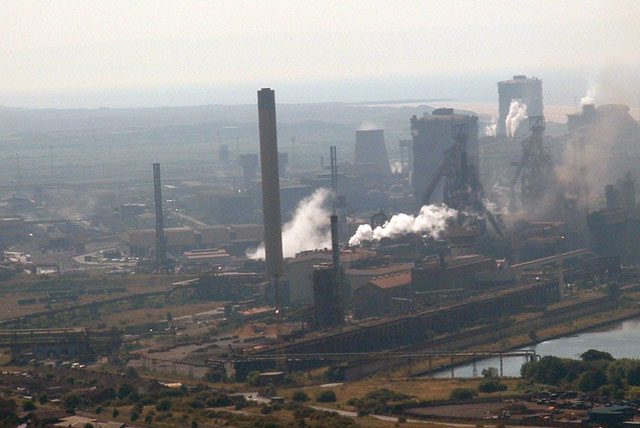First Minister of Wales, Carwyn Jones, has set out the actions that need to be taken following Tata’s decision to put their plants up for sale.
I believe there is a future for steelmaking in Wales and, working with others, the Welsh Government is doing everything we can to secure that future. Port Talbot, Llanwern, Shotton and Trostre have been producing high quality steel for years. Whole communities have grown around those works and the livelihoods of thousands of families depend on decisions being taken now. Those families and those communities are the first concern of this Government now and in the future.
I have one simple message for the people of Wales and the UK Government. These plants cannot close. Welsh steel – British steel – cannot be allowed to die. These plants are vital to the future of the United Kingdom’s interests. Britain cannot face a twenty first century where we are dependent exclusively on imported steel. We need capacity to make our own steel and build our own future.
Tata’s decision to put their plants up for sale was deeply disappointing. The board rejected a turnaround plan presented to them by their European management. I believe that Tata’s loyal and efficient workforce deserved the chance to implement the plan and make it work. The plants are well managed and the workforce has done everything asked of them – and more. The current situation has been created by distorted conditions in the global steel market, and not by any inefficiency on the part of the workforce.
I am also disappointed that the UK Government has failed to tackle the underlying difficulties in UK steel production in a systematic way. We have stood alongside the steel industry for years complaining about high energy costs and steel-dumping. UK Government action has been slow and inadequate. It is clear that they have not driven a hard enough bargain at EU level to protect our products from the effects of market-distorting steel dumping. Indeed, we discovered at the weekend that it’s not the European Union holding the UK back, but the other way round – the UK Government has been holding back the European Union.
However, we must deal with what’s in front of us. The Welsh Government is working closely and tirelessly with Tata and the UK Government to do everything we can to secure a viable and sustainable future. We are in close touch, too, with the unions who are playing a very constructive role.
Three things must happen to secure the future of the plants:
Firstly, if a buyer cannot be found within the sales period, the UK Government must take the plants into public ownership until a buyer can be found. The Welsh Government is willing to contribute from our resources the money we have previously pledged in support of a turnaround.
Secondly, the UK Government needs to negotiate a realistic tariff regime at European Union level to mitigate steel-dumping. Steel producers in the UK need to operate on a level playing field with the rest of the world.
Thirdly, we need to see a long-term strategy to reduce energy prices and improve energy efficiency for energy intensive industries in the UK. Without these measures, the underlying problems will re-emerge later and undermine the future of the plants, whoever owns them. What we need is a sustainable plan for the long-term.
Tata is preparing a sales prospectus for their operations. They must allow sufficient and realistic time for interested buyers to consider the offer. This should be months, not weeks. As they prepare to withdraw from Wales Tata must have regard for its legal and moral responsibilities. Tata has duties and obligations to its workforce and steel communities. It is a company with a global reputation for corporate social responsibility and they should not surrender that reputation cheaply.
We owe it to the workforce at the Tata plants to conduct our debate based on honest facts. Any proposed solution must be viable and durable. As I have already said, I would strongly support a transfer into UK Government ownership, if necessary, while a buyer is being found.
Let me be clear: the Welsh Government simply does not have the resources to own or manage the Tata plants. We do not – and no one should mislead the workforce into thinking otherwise. But we are working closely with the UK Government and we are prepared to contribute from Welsh Government resources to help secure a long-term solution.
Let me move on to some specific actions:
We have a team of officials in London today working on the detail with BIS and others. I spoke to the Prime Minister last week and I’m talking to him again tomorrow. I repeat, we are committed to working with the UK Government to do everything we can to secure the future. There have been some early expressions of interest in Tata’s plants – I’ve spoken to one potential buyer this morning. How we deal with these expressions of interest is the substance of our joint work with the UK Government.
In January we established the Tata taskforce, chaired by the Minister for Economy, Science and Transport, bringing together unions, local authorities and other partners to look at ways of supporting our steel communities. The Task Force met this morning and we have announced that:
We have established the Port Talbot Waterfront Enterprise Zone and we have today announced that it will be chaired by Roger Maggs, a founder of the investment firm Celtic House Venture Partners.
I can also announce that we are launching the Enterprise Zones Business Rates Scheme in Port Talbot Waterfront. The scheme is open to applications from this week until 30 September. It is geared towards generating growth among small and medium sized enterprises and will provide an additional stimulus in the area.
I expect there will be support for our steel communities in every part of this chamber. As I said at the outset, the workforce, their families and their communities are at the front of our thoughts. But we are driven not just by sentiment. We are not arguing to prop up a dying industry. Wales needs steel. Britain needs steel. Both as First Minister for Wales and a member of the wider British political community, I say that we cannot contemplate a future without a domestic steel production capacity. Steel is vital to our long-term strategic interests – both for our economy and our defence. A United Kingdom without steel making is a United Kingdom which is enfeebled and smaller in the world.
Steel production is not just about statistics and the economy – vital though they are – it is a fundamental part of who we are as a country.
The clear message that needs to go from this National Assembly today to all our steel communities – Port Talbot, Llanwern, Trostre and Shotton – is that we stand beside you shoulder to shoulder.

| [donate]
| Help keep news FREE for our readersSupporting your local community newspaper/online news outlet is crucial now more than ever. If you believe in independent journalism,then consider making a valuable contribution by making a one-time or monthly donation. We operate in rural areas where providing unbiased news can be challenging. |


















